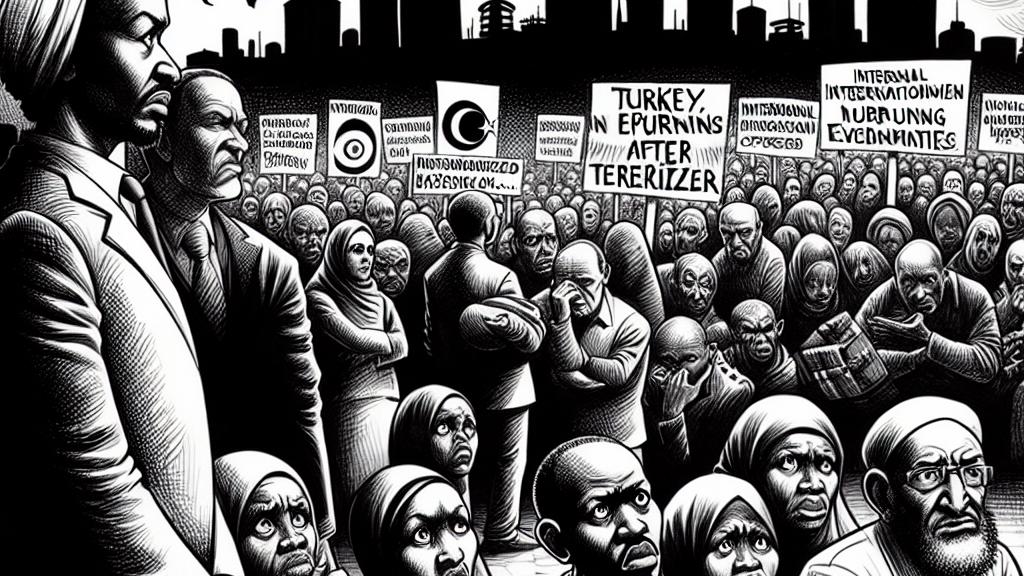Repatriation of Turkish Refugees from Kenya
Overview
- The repatriation of four Turkish refugees by Kenya has ignited significant controversy.
- This event emphasizes ongoing concerns about refugee rights and state responsibilities.
- While maintaining ties with Turkey, Kenya faces heightened scrutiny regarding its refugee policy.

Context of the Event
Recently, a highly controversial decision unfolded in Nairobi, where the Kenyan government repatriated four Turkish nationals. This dramatic step, requested by Turkey, occurred amidst alarming reports of their abduction by armed men. These individuals are not just ordinary refugees; they are linked to the Gülen movement, an organization that Turkey has labeled a terrorist group since the failed coup attempt in 2016. The backdrop of this situation is even more striking, considering the recent death of Fethullah Gülen, the movement's leader, which has intensified fears for the safety of these men. Their return to Turkey could expose them to grave risks, including potential persecution, making this incident a crucial turning point in international refugee policies.
Concerns Over Refugee Rights
The repatriation has raised pressing questions regarding the adherence to international refugee laws by the Kenyan government. According to the UN's 1951 Refugee Convention, refugees must not be returned to countries where they might face threats to their life or freedom. This principle is particularly relevant as human rights organizations, like Amnesty International, have publicly condemned Kenya’s actions, highlighting the grave implications of such decisions. Many families of the repatriated individuals are understandably anxious, fearing for the safety of their loved ones who may be targeted based on political affiliations. Furthermore, the incident has sparked widespread media coverage, drawing international attention to the precarious situation that refugees face when caught between their home countries and their host nations.
Implications for Kenya-Turkey Relations
This significant incident not only affects the individuals involved but also brings to light the complex relationship between Kenya and Turkey. Historically, these two nations have enjoyed robust diplomatic ties, with cooperation spanning trade, security, and economic development. For example, recent trade between them has blossomed, showcasing a mutual interest in strengthening economic links. However, this repatriation decision complicates matters, as it tests Kenya's commitment to protecting human rights while balancing its strategic alliances. Critics argue that Kenya should prioritize the welfare of refugees over diplomatic relations, and how the government navigates this tension will undoubtedly shape its future refugee policies. This situation serves as a pivotal moment, highlighting the broader implications of international cooperation in a world where political loyalties can jeopardize individual safety.

Loading...